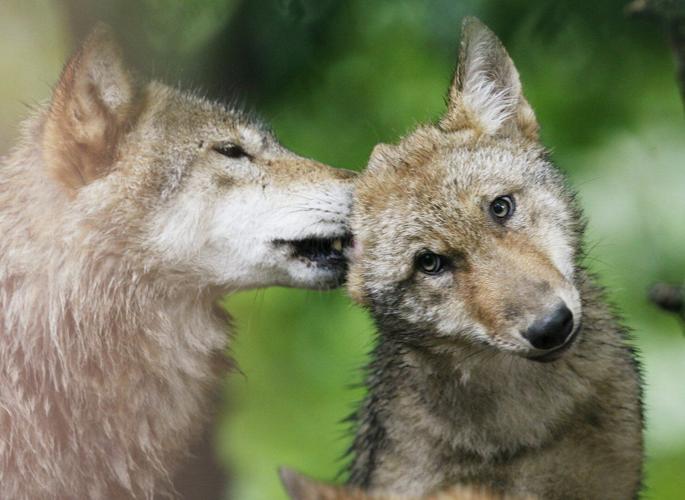BARCELONA (AP) ŌĆö Lawmakers in Europe voted Thursday to downgrade protections for wolves across the European Union’s 27 states in a victory for farmers over environmentalists.
Nearly two-thirds of the European Parliament meeting in Strasbourg, France voted to change wolves’ status from ŌĆśstrictly protectedŌĆÖ to ŌĆÖprotected’ in a vote of 371 to 162, with 37 abstentions.
Centrist and right-wing groups celebrated the vote.
ŌĆ£Farmers can now breathe a sigh of relief,” said Herbert Dorfmann, a spokesperson for the European PeopleŌĆÖs Party, a coalition of center-right groups in the EU. Right-wing Dutch politician Sander Smit said on Twitter: ŌĆ£This is fantastic news.”
Environmental groups criticized the decision as politically motivated rather than scientifically grounded.
ŌĆ£This is a sad day for biodiversity and wild animals,ŌĆØ said L├®a Badoz at the Eurogroup for Animals. Joanna Swabe, a spokesperson for Humane World for Animals, called for individual governments to increase national protection for wolves.
Politician Jutta Paulus from the parliament’s Greens party said the campaign to reduce the wolves’ protection ŌĆ£borrows from the Donald Trump playbookŌĆØ and ŌĆ£ignores scientific evidence and attacks legislation which has been proven to work for decades for no clear gain other than the scoring of cheap populistic points.”
Tuesday’s vote was the final real hurdle before the measure becomes EU law. The change to the central Habitats Directive law will now likely be passed swiftly by the European Council and enter into force across the 27 member states.
Once deemed necessary to combat threats to the apex predator, restrictions on hunting wolves have over the past few years lost public support as many have come under pressure in recent years. Populist and extreme-right parties have criticized the measures as being thought up by urban elites with little knowledge of rural life.
Farmers in many member states have been increasingly angered by attacks on livestock by packs of wolves that have thrived in woods and fields close to agricultural land.
The political movement to ease rules on killing wolves was given top-level support by EU Commission President Ursula von der Leyen. An ardent fan of horses, von der Leyen had three years ago.
Last year, more than 50 European nations from Turkey to Iceland voted to known as the Bern Convention to curtail protections for wolves.
Experts and environmental groups estimate there could be up to 19,000 wolves across Europe, with large populations thought to roam in Bulgaria, Greece, Italy, Poland, Romania and Spain. After nearly being wiped out in the 20th century, their numbers are estimated to have grown by at least 25% over the last decade.
Programs around the world to protect wolves have been shown to benefit local ecosystems. Yellowstone National Park in the United States said reintroducing wolves in 1995 had led to a better regulated food chain that helped drive a bump in forest cover and animal populations. Yet American states like Wyoming and have passed allowing for more killing of wolves, driven as in Europe by politics mixing agitated farmers and safety concerns.
ŌĆ£Wolves are vital to healthy ecosystems, but todayŌĆÖs vote treats them as a political problem, not an ecological assetŌĆØ, said Ilaria Di Silvestre, Director of Policy and Advocacy for Europe at International Fund for Animal Welfare. ŌĆ£The EU was once proud to lead on nature protection. Now we are seeing vital species like the wolf sacrificed for short-term political interests that will benefit no one.ŌĆØ




























